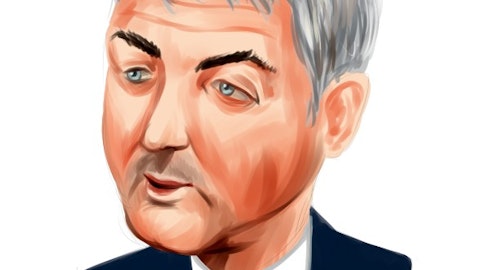It has been a rocky road for Best Buy (NYSE: BBY) whose stock was down ~7.4% on Thirsday and another ~2.8% on Friday. BBY’s recently reported $1.7 billion loss has compared to a $651 million profit last year, has sent the stock tumbling. Same store sales declined 2.2% domestically and 2.4% internationally—hardly a promising trend. Management has been focused on cutting overhead costs and closing underperforming stores but those same store sales numbers show that BBY continues to struggle.

FY 2013 guidance of $3.50 to $3.80 was in-line with consensus expectations of $3.67. Sales projections of $50 billion to $51 billion have been adjusted downward for declining same store of 2% to 4%. The operating margin has quite a range from negative 4% to positive 4%, which we would have liked more visibility on. BBY will continue to repurchase shares; guidance includes $750 million to $1 billion worth, but note that this is less than the $1.5 billion of share repo executed in 2011. However, we feel that investors will be disappointed by the lack of dividend increase.
The area that we are interested in is the restructuring efforts that BBY is implementing. Management outlined its plan to reduce $800 million in costs by 2014, $300 million of which will come from retail stores, and $250 million of which they expect to realize this year. BBY will close 50 big box stores and work to reduce corporate overhead/product transition costs. We are inclined to agree with BBY’s cost cutting initiatives from a longer term perspective mostly because the company is running out of options. The majority of the savings from the cost cutting will be put toward improving customer service and price, which should in turn help the top line.
At the same time, the company continues to expand its small-store Best Buy Mobile concept, and is rolling out a smaller Connected Store concept in limited markets. These smaller mobile stores have helped drive traffic to big box stores but the risk is that aggressive build-out of these will eat away at the big box store sales. Additionally, we like the eCommerce platform and think it has a lot of potential (guidance is 18% for FY 2012). Furthermore, BBY has a new labor model that improves training and borrows from the incentive compensation model at Best Buy Mobile. Taking this model to other areas of the company should be a focus moving forward, and we would have liked additional commentary on the impact of this decision. The question is, “will it be enough?”
These initiatives are crucial to the future of the company, but it may be too little too late. The declining same store sales trend is of particular concern as is the margin impact of the Apple iTV launch on top of very vague margin guidance (-4% to +4%). The capital allocation program is decent—2.5% dividend yield and share repurchases—and modest valuation of 6.0x to 7.0x forward P/E, may make BBY seem too cheap, but there are long-term issues that we are not confident the company can overcome. In the upcoming quarters, we would not be surprised by additional loss of market share, especially in the US. Though one may not initially think of Apple (NYSE: AAPL) (read more on Apple’s Dividend Announcement) and Amazon (NYSE: AMZN) to be direct competitors, both companies pose a significant threat to the electronic retailer. AAPL’s own retail stores no longer make BBY a center for all the latest in tech and AMZN’s convenience and pricing is increasingly becoming preferable to consumers. Frankly, we are not sure that BBY’s eCommerce platform will be able to hold its own against powerhouse, AMZN. We also see Wal-mart (NYSE: WMT) and eBay (NASDAQ: EBAY) as competitors that will chip away at BBY’s market share. However, David Einhorn, Steve Leonard, and Daniel Bubis still like the stock. Billionaire David Einhorn increased his position in the stock by 10% over the fourth quarter and had $180 million invested in the stock at the end of December. It has been a losing position for Einhorn. He bought Best Buy during the first quarter of 2011. The stock lost 14% over the past 52 weeks.
We don’t like Best Buy at the moment. Over the last three years, the average forward year P/E multiple was 12.9x, and ranged between 6.2x and 16.2x. Given our concerns, we think it is appropriate that BBY trade at the low end of the range, but would not recommend buying the stock until the secular trends turn positive.
